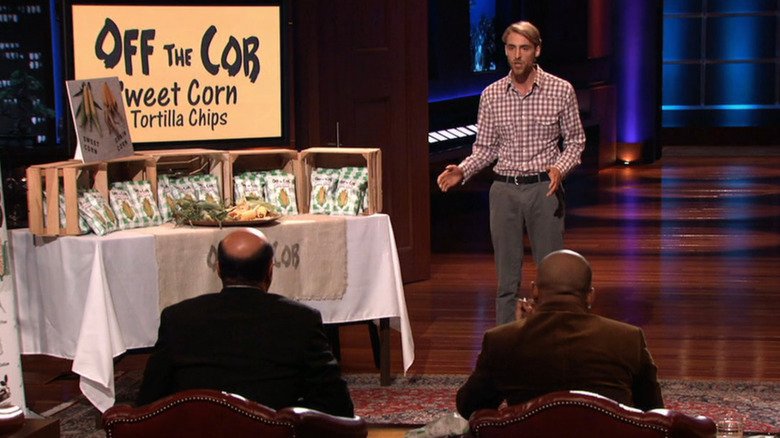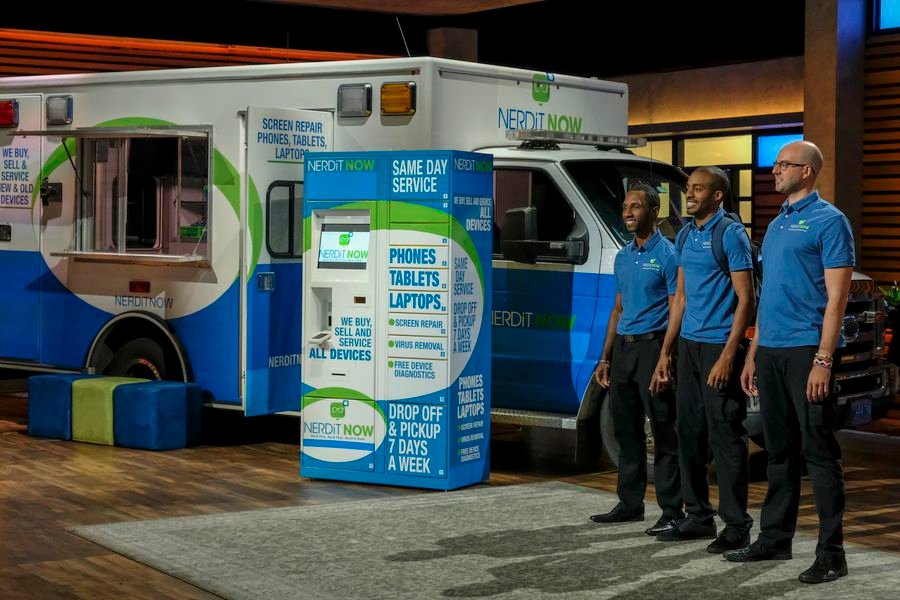Let’s cut through the TV glitz—most people think walking onto Shark Tank guarantees business stardom. Not true. The Off the Cob story shreds that myth. Real deal? This isn’t about a fairytale ending. It’s about grit, numbers, and what really separates a good idea from a scalable company.
Contents
ToggleWhy Does Off the Cob Still Get Talked About?
Nine times out of ten, food brands hit Shark Tank, do the song and dance, maybe get slapped around by Mr. Wonderful, and fade out by the next commercial. Off the Cob was different. Years later, people still mention founder Cameron Sheldrake. Why? The product was bold—sweet corn tortilla chips, not the dusty grain stuff we’re used to. It was a clear play for taste plus better-for-you buzzwords: organic, non-GMO, guilt-free snacking.
But real talk—being memorable on TV only goes so far. What hustlers care about is whether an underdog product can outmaneuver Big Snack and actually turn a profit. Spoiler: Off the Cob’s shot wasn’t perfect, but it made a ripple big enough to be taken seriously.
Cameron Sheldrake: Betting the Farm
Here’s who you can’t ignore: Cameron Sheldrake. Raised around dirt and hard seasons on his family’s upstate New York farm, he saw more sweet corn hitting compost than grocery carts. Instead of just complaining, he hustled to turn wasted crops into real cash. That chip on his shoulder (pun intended) shaped his Shark Tank approach.
Unlike your Instagram CEO types, Cameron felt the pain points—slim margins, tough logistics, fighting big competitors. He wasn’t chasing a pipe dream; he was attacking a problem he knew firsthand. I see a lot of founders stumble right here—solving problems that don’t matter. Not this guy.

Off the Cob Tortilla Chips: The Main Thing
What separated Off the Cob from every better chips pitch? One line: Sweet corn. Most chips use commodity grain corn: cheap, bland, dry. Off the Cob rolled out with sweet corn—the stuff you roast at barbecues. Result: brighter flavor, touch of natural sweetness, a chip that didn’t hide behind salsa or dip.
On paper, it sounds like a Bombas or Scrub Daddy move. One key change, clear why-it’s-better, and spin it with health terms: organic, non-GMO, fewer processed ingredients. It wasn’t junk food in an earthy bag—it was genuinely tastier. And in the age of ingredient label hawks, that’s a stickier story than most.
Problem? Sweet corn doesn’t scale cheap. Good food margins are tight, but this was on another level.
Show Me the Numbers: Net Worth and Sales—Now and Then
Let’s talk hard numbers, the stuff you won’t get from a highlight reel or puff piece. Cameron asked for $100,000 for 15% equity—company valued at $666,667. Modest, by Shark Tank standards, but a product’s value is only as real as its revenue.
When he pitched, Off the Cob had pulled in $45,000 over 13 months. Not nothing, but not runaway. More telling: after more than a year, they hadn’t turned a profit. He had shelf space at Whole Foods and Wegmans, which is like startup catnip, but not enough to balance the books.
Why? The cost to make sweet corn flour was $5.50 per pound. Grain corn flour sells for pennies. The sales were promising but the math didn’t work. And if you’ve ever built a physical product, you know—margin isn’t just king. It’s the whole royal family.
Curious about today’s worth? SharkWorth’s May 2024 update shows Off the Cob is still discussed but details are murky. It’s not hitting huge numbers, but is alive. Sometimes, survival itself is the win.
The Shark Tank Pitch: High Stakes on Live TV
Let’s set the scene: Season 6, Episode 10. Aired November 21, 2014. Cameron walks into the tank with a low-key swagger—no bravado, just conviction.
He breaks down sweet corn vs. grain corn for the Sharks. He shows how most brands cheap out while his stuff tastes real—chips even non-snackers (looking at you, Lori Greiner) could enjoy.
The Sharks liked the taste. Nick Woodman (GoPro founder, guest shark) was a fan of the branding and the product look. Lori even said, I don’t even eat chips, and I love these. It was one of those rare moments: the product outperformed the pitch.
But when the money talk started, the mood shifted.

Why the Sharks Walked: The Cost Killed the Deal
Backstage, no one cares about your sweet corn origin story if the numbers stink. Kevin O’Leary got straight to the heart: why would anyone pay 10x ingredient cost for a snack? Margins were too slim, even for premium territory.
Mark Cuban and Daymond John both bailed. Not because they hated the flavor, but because they smelled a margin squeeze bake into every bag. Mark’s built food businesses before—he knows the pain when high ingredient costs eat your shelf profits.
Sometimes founders get too attached to their vision. But Cameron’s numbers handcuffed him. No amount of great branding could flip the economics.
No Shark took the deal.
Life After the Cameras: What Happened Next?
Here’s where Off the Cob refuses to be just another Shark Tank trivia answer. Some brands get their Shark bump—7.9 million viewers see your product, you ride the QVC or Amazon wave, bank some cash, then fade.
Off the Cob made it out of the after-the-pitch graveyard. They didn’t land a deal, but stuck around. The exposure scored them more shelf space, expanded customers, and interest at food expos. But let’s be real—hyper growth never came.
By May 2024, Off the Cob is still mentioned in Shark Tank update circles. Some reports say they pitch at foodie trade shows, and you’ll find fans in random Whole Foods still clamoring for the sweet corn crunch. Are they pulling in millions? Nope. Are they out of business? Also nope.
It’s a grind—real talk. They’re not a household name, but they’re not an afterthought either.
Tough Love: What Entrepreneurs Need to Learn from Off the Cob
Most founders dream of blowing away the Sharks. But here’s the unfiltered lesson from Off the Cob:
1. Product Differentiation Is Necessary—But Not Sufficient
Sweet corn was a true innovation. The product had legs. But cost structure nearly killed the company before it could grow. Don’t ignore your margin math for the sake of cool or “unique”.
2. Distribution Doesn’t Equal Profit
Shelf space at premium groceries means nothing if every sale bleeds money. You need negotiating power and cost controls, not just buyer enthusiasm.
3. The Shark Tank Bump Is Real, And Temporary
Exposure can flood your site with orders, but if you can’t supply (profitably), you’re just burning cash for headlines.
4. Mission Matters, But So Does Survival
Reducing food waste is noble. But the game is about building a repeatable, healthy business first—then the impact scales.
5. No Deal? Not the End
Plenty of losers outlast the winners. Staying afloat after Shark Tank is often harder—no mentor, no money, just hustle. But sometimes, that’s all you need.
Conclusion: Was Off the Cob a Fail or a Win?
Missed investment = automatic fail? I don’t buy it. Off the Cob didn’t blast out of Shark Tank with millions or a Shark in their corner. But Cameron Sheldrake did what real founders do—kept swinging. They carved a niche, weathered the quick wins and setbacks, and still get a mention in Shark Tank updates years down the line.
There’s no massive acquisition, no national domination. But they’re proof the grind, not one TV moment, defines the game. If you’re a hustler plotting your own food venture, study Off the Cob. Unique product, real story, but watch your margins like your life depends on it.
Key FAQs About Off the Cob on Shark Tank
1. Is Off the Cob still in business?
Yes, they’re still active, according to SharkWorth’s 2024 updates, but they’re under the radar.
2. Did Off the Cob ever turn a profit after Shark Tank?
No public numbers show big profits. Margins were always the main challenge.
3. Where can you buy Off the Cob chips now?
Some Whole Foods locations, possibly Wegmans, and select health retailers. Online stock varies—check brand socials often.
4. Why did the Sharks reject the deal?
High ingredient costs killed the margin. Even premium buyers want reasonable retail prices.
5. What’s Cameron Sheldrake doing these days?
He still hustles the food and ag-tech scene, though details are private since 2024’s latest SharkWorth mention.
6. How did appearing on Shark Tank affect sales?
Initial bump—spiked interest and more buyers. But didn’t translate to huge, sustainable growth.
7. Are Off the Cob chips available outside the US?
Not in any big way—US-only unless you spot them at specialty importers.
8. Can high-cost, niche food brands survive mainstream?
Tough, but possible with rabid fans, tight supply, and premium retail. You need diehards and a killer backstory.
Want more real talk and updates about Shark Tank businesses? Keep checking SharkWorth. No fluff—just the raw wins, the ugly fails, and what every founder needs to hear.










